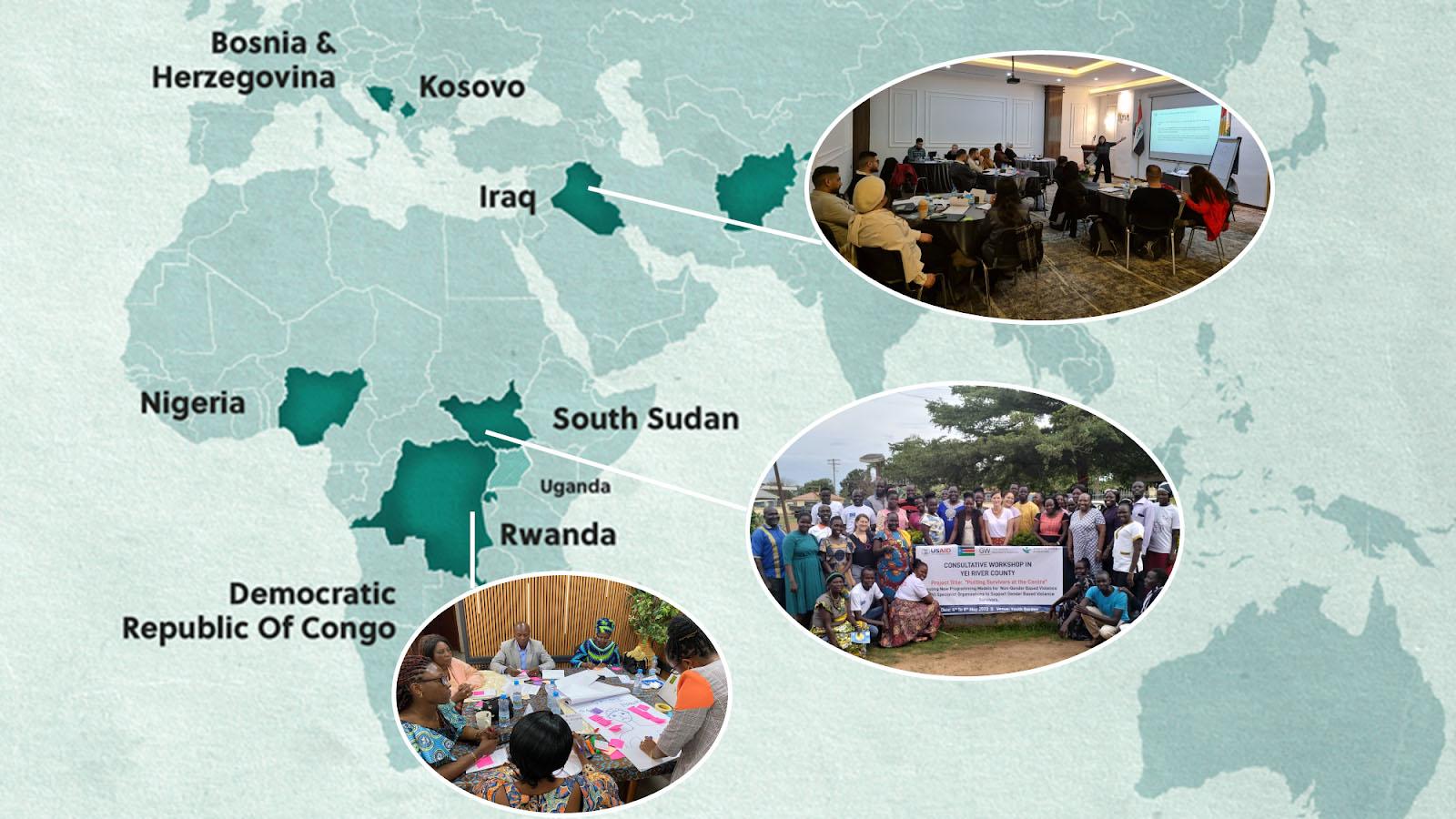Thematic Areas
From the data collected during Phase I of the PSAC project, three key thematic areas of concern emerged:
Improved immediate handling of disclosures
Supporting frontline humanitarian workers who do not have experience with GBV and are not considered GBV specialists, to respond in a safe and appropriate manner to disclosures of GBV following international best practices.
Connecting to & supporting existing specialist services
Building non-GBV specialist knowledge about existing GBV specialist services and providers, so that frontline humanitarian staff are prepared to send survivors to the correct organizations and institutions to seek support following an incident of violence.
Medium to long-term support to GBV survivors
Incorporating various forms of long-term psychosocial support into non-GBV specialist programming to better support women and girls in the surrounding communities

Pilot Programs
From these three thematic areas emerged five program models:
Psychosocial First Aid (PFA) and immediate support for survivors
The “Handling Disclosures and Safe Referrals” pilot program is a training course that builds non-GBV specialists’ knowledge on key topics including: GBV (types of GBV and prevalence), psychosocial first aid (how to look, listen, and support a survivor without causing undue or additional trauma), referrals (how to properly refer a survivor onward to specialized care), and data protection and confidentiality (how to safely deal with data from survivors and how to maintain a survivor’s identity and other key information confidential).
Location: DRC, Iraq, South Sudan
Strengthening survivor-centered care and gender-equitable attitudes among GBV service providers
This pilot program includes trainings targeted toward non-GBV specialists in the community and aims to build their awareness on GBV and how to properly and safely respond to spontaneous disclosures of GBV from women and girls. The training also includes information on gender equality and the importance of challenging stereotypes associated with GBV.
Location: DRC
Strengthening coordination between GBV specialists and non-specialists
This pilot program targets contexts where GBV and non-GBV specialists work in close proximity to each other, with the aim of strengthening communication between the two communities to ensure that information and other key knowledge is shared between the two. This can include information about country-level practices or laws related to GBV, as well as up-to-date information on organizations providing specialized GBV care (for example, if these organizations are still accepting new clients or if they are offering specific services).
Location: DRC, South Sudan
Strengthening referrals to specialized services
The activities that together make up this pilot program aim to better support survivors to access specialized GBV services, by building the capacity of non-GBV specialist organizations to direct survivors to these specialized services and innovating ways to challenge various social and economic barriers preventing survivors from accessing specialized services. This includes raising awareness about the GBV referral pathway – the mechanism that safely links survivors and those at risk of GBV to qualified, supportive, and competent services that might needed as a result of the violence experienced.
Location: DRC, Iraq, South Sudan
Supporting Psychosocial Resilience
This pilot program includes activities that build the capacity of survivors and frontline staff to use informal psychosocial support techniques such as self-care, as well as group and individual psychosocial support sessions. This program aims to respond to the wide array of psychological support needs expressed by women and girls in humanitarian contexts, including but not limited to GBV. This support is meant to complement the existing programming of non-GBV specialist organizations and other institutions who provide targeted programming for women and girls, to ensure the sustainability of this support and to create safe spaces for women and girls who participate in these activities.

